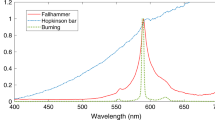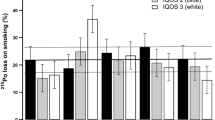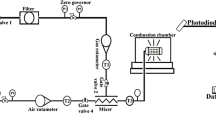Abstract
THE distressing and increasingly frequent incidence of fatal fires in tankers, aeroplanes and other petrol-using machines, and in factories and laboratories employing fuels and inflammable solvents, has repeatedly directed attention to the need for a quick quenching agent. In such straits, so long as they contain carbon tetrachloride, the brass squirts so universally carried are of less use than mascots. This substance will not extinguish petrol fires. At best, it may localize the combustion. It yields stifling clouds of black soot and twice its own vapour-volume of chlorine. It is itself toxic.
This is a preview of subscription content, access via your institution
Access options
Subscribe to this journal
Receive 51 print issues and online access
$199.00 per year
only $3.90 per issue
Buy this article
- Purchase on Springer Link
- Instant access to full article PDF
Prices may be subject to local taxes which are calculated during checkout
Similar content being viewed by others
Author information
Authors and Affiliations
Rights and permissions
About this article
Cite this article
ELLIS, O. Extinction of Petrol Fires by Methyl Iodide. Nature 161, 402–403 (1948). https://doi.org/10.1038/161402b0
Issue Date:
DOI: https://doi.org/10.1038/161402b0
This article is cited by
-
Extinction of Petrol Fires by Methyl Iodide
Nature (1948)
Comments
By submitting a comment you agree to abide by our Terms and Community Guidelines. If you find something abusive or that does not comply with our terms or guidelines please flag it as inappropriate.



